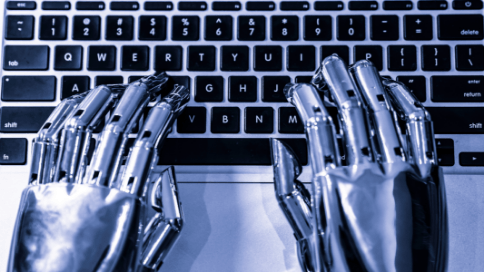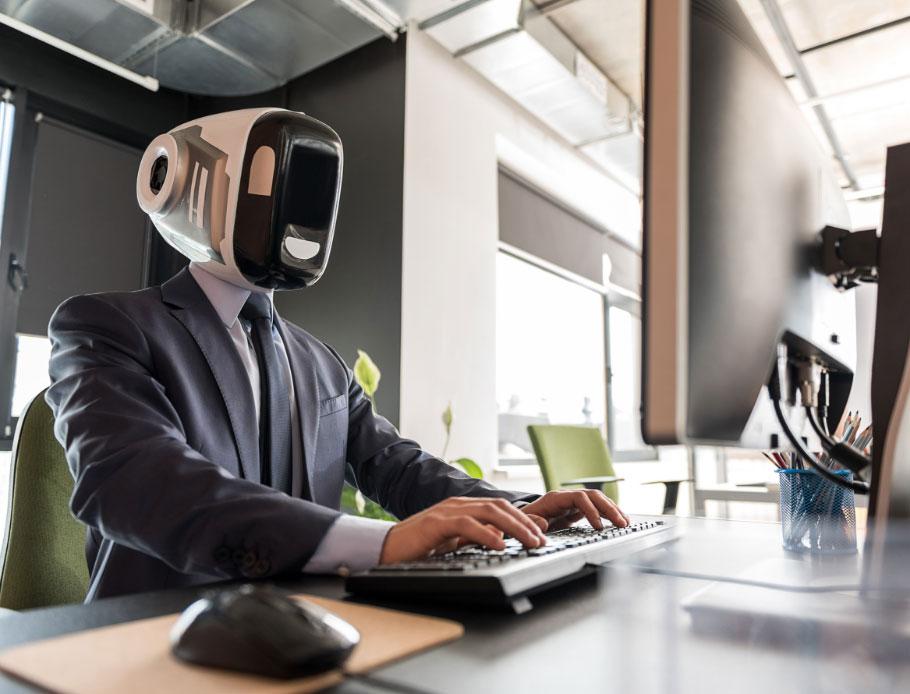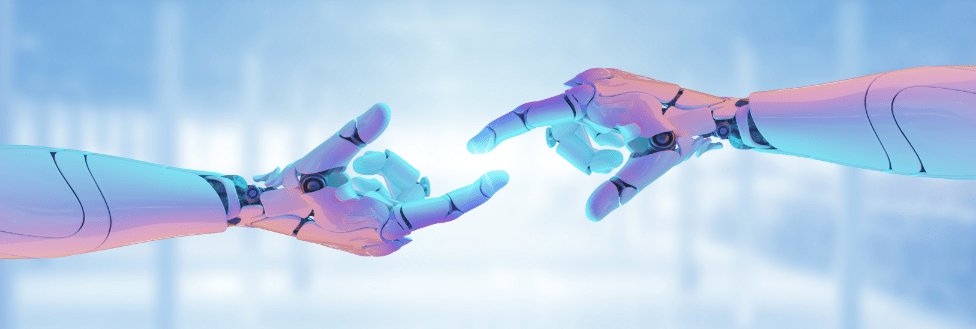The Power of New AI and the Perils of Early Adoption
As I sat down to write this blog about the current arms race in artificial intelligence and how it’s received by different age groups, I thought: why don’t we let AI speak for itself? So I asked Chat GPT to help out.
Here is AI’s intro for our latest Modern Impact blog:
“Artificial Intelligence (AI) has become an increasingly ubiquitous part of our lives. From the chatbots that answer our customer service queries to the personalized recommendations we receive on e-commerce sites, AI has become an essential part of how we interact with technology. However, the impact of AI is not evenly distributed across generations. In this blog, we will explore the different ways in which AI is affecting different populations.”

Impressive? Surely. Scary? A little bit. Useful? Absolutely.
While everyone is completely worked up about ChatGPT, we seem to forget it’s still in beta form and can’t pull any data more recent than September 2021. Also, there’s a “black box” issue where these machines are programmed so intelligently that we can’t tell HOW they solved a problem or came to a conclusion…so we can’t easily stop them from doing what they’re doing.
Generative AI software has become a modern gold rush. Trickling down from the biggest names in Silicon Valley to tiny start-ups, companies with more capital than experience are teaching computers to think like humans. But the potential for an enormous windfall means that, lately, common sense doesn’t always match common practice.
This collective “ready-fire-aim” approach to AI development is so pervasive that Elon Musk and over 1,000 other researchers are demanding a six-month cease fire.
Their open letter to pause all giant AI experiments indicates top-down concerns that a reckless approach to AI development could create “profound risks to society and humanity.” Before we cue the Terminator music, it’s important to evaluate (or assess) these concerns qualitatively.
Artificial I’s biggest benefit at present may be its ability to quickly analyze and compile inconceivable troves of data. The problem is that artificial intelligence is sifting through human data and humans are intrinsically biased and discriminatory. Therefore, unregulated AI engines have the potential to amplify exiting biases and discrimination in society.

Getting back to the gold rush, regulation is the key turn-of-phrase. The Musk et all letter, published by the non-profit, Future of Life Institute, states that these machine learning systems are being developed beyond the understanding or control of their creators. Consequently, the authors “call on all AI labs to immediately pause the training of AI systems more powerful than GPT-4” for at least 6 months.
If AI labs fail to heed the call, Musk and the other prominent voices are officially calling on governments to step in and halt production.
Beyond societal concerns about AI’s reach into education, employment and politics, there are environmental woes, as well. Research shows the carbon footprint of training one AI model is equivalent to a transatlantic flight, and the necessary computational resources are mind-boggling.
So, should we all burn our computers and beg the Amish for mercy? Not quite yet. Not all the reports regarding AI herald doom and gloom – especially in advertising.
Paradigm shifts in technology not only change the way we see the world but raise questions about our new roles in it. Where every media agency in the world is racing to put AI to use, Modern Impact has been using and honing our proprietary Intelligent Pixel® technology for years. Our machine learning helps our clients by zeroing in on millions of pre-qualified prospects to deliver unparalleled marketing efficiency – and its perpetual refinement and response measurement improve efficiency and efficacy.
Decades ago, there were arguments about how calculators will make humans useless at math. As recently as five years ago, people were still asserting that Google would make us generally stupid and lazy. In the case of automation, its ability to effect consumers’ brand expectations is what’s likely to change first – and it’s already happening.
“The place where machine learning and complex API integration first found the mainstream was within the ad server. In deciphering terabytes of data in real-time, we could creatively optimize media placement,” Modern Impact founder and CEO, Michael Priem said.
Advertising has always been on the forefront of user experience (including AI). Those of us familiar with machine learning are used to something that lives within specific data sets. However, the rush for development has brought us to a tipping point where AI is crossing the border from function into feelings.
“We as a society understand AI as something to complete tasks and I think it spooks us when we see this emotional pendulum shift that feels almost human,” Priem said.

The degree to which we are spooked, it seems, lies in our generational confines. Generation Alpha, is equally concerned with their online perception and their real-world identity. Looking to younger populations, digital literacy is table stakes. Those who will have the firmest grasp on AI’s potential are digital natives (Gen-Z through Alpha).
With more kids aspiring to be influencers than professional athletes, technology will continue to fuel AI’s development. “Generative AI’s recent rise shouldn’t surprise anyone with its ability to further digital friendships and communication,” Priem said.
AI is having significant impact on all generations. However, the weight is not evenly distributed. Millennials, Gen Zers and Alphas are the most enthusiastic users. Gen X and Baby Boomers, for better or worse, seem to be the first to be sounding the alarm.
As AI continues to evolve in other industries, that level of concern could escalate. We have created something that not only can replicate human behavior but is quickly learning to understand itself. (Cue the Terminator theme song).
Stay tuned for an in-depth look at generative AI’s impact on creative and design in advertising in Part Two of our exploration into AI.


